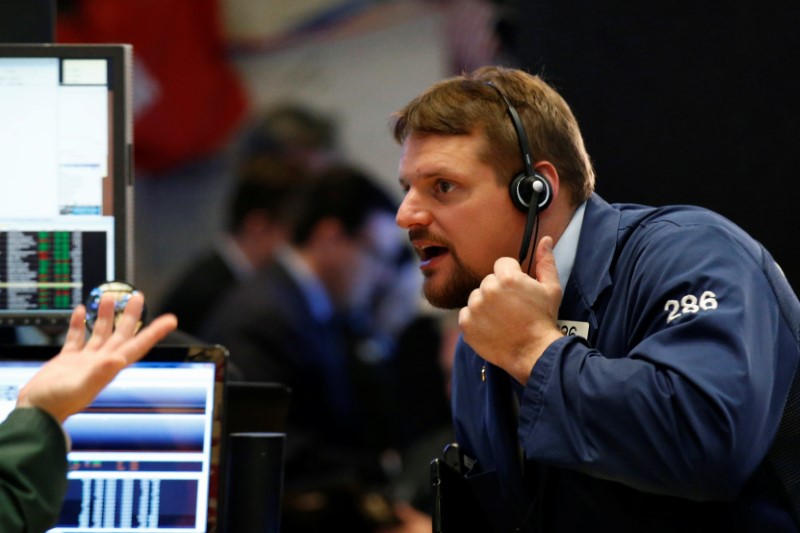By Rodrigo Campos
NEW YORK (Reuters) - Oil prices rallied on Wednesday after members of the Organization of the Petroleum Exporting Countries reached an agreement on a production-limiting deal, boosting energy sector shares.
The U.S. dollar was flat versus a currency basket but fell to a near-five month low versus the Norwegian krone
Crude oil prices jumped after sources told Reuters that OPEC agreed to reduce its oil output by about 750,000 barrels per day. Country-by-country production is to be decided at the next formal OPEC meeting in November, when an invitation to join cuts could also be extended to non-OPEC countries such as Russia, sources said.
U.S. crude (CLc1) was up 4.4 percent at $46.63 a barrel and Brent (LCOc1) last traded at $48.24, up 4.9 percent on the day.
"This could potentially be very significant, not for the barrels that could be removed from the market, but because it's a signal that the Saudis could be returning to active supply management. That’s the bottom line," said Michael Wittner, global head of oil research at Societe Generale (PA:SOGN) in New York.
"It remains to be seen how many real barrels will be removed from the market. To me, the significance is way beyond that: they all sat down in a room and made a decision."
The move in oil boosted shares in the energy sector of the S&P 500, giving direction to Wall Street indexes that had previously see-sawed near the unchanged line.
The more-than 4 percent gain in the S&P energy stocks (SPNY) was the largest for any day since mid January.
"If they agree on an output cap, oil prices go higher and that is good for U.S. earnings, as we’ve seen the impact of lower oil on those," said Paul Zemsky, chief investment officer, Multi-Asset Strategies and Solutions at Voya Investment Management in New York.
He said if higher oil prices lead to more U.S. production that is overall positive for the world's largest economy and has a multiplier effect beyond the energy sector to industrials, services and even tech, and "could add one-quarter to one-third point to GDP growth."
The Dow Jones industrial average (DJI) rose 110.94 points, or 0.61 percent, to 18,339.24, the S&P 500 (SPX) gained 11.44 points, or 0.53 percent, to 2,171.37 and the Nasdaq Composite (IXIC) added 12.84 points, or 0.24 percent, to 5,318.55.
Commodity shares led European stocks higher while Deutsche Bank (DE:DBKGn) recovered from all-time lows hit Tuesday. Germany's biggest lender faces big fines over claims it mis-sold mortgage-backed securities and, like other euro zone lenders, has been squeezed by the ECB's negative rate policy.
The pan-European FTSEurofirst 300 index (FTEU3) ended up 0.69 percent, while MSCI's gauge of stocks across the globe (MIWD00000PUS) rose 0.5 percent boosted by Wall Street. Nikkei futures
U.S. Treasury yields were little changed, though they inched higher as the rally in crude and stocks lured traders into riskier assets. Benchmark 10-year notes (US10YT=RR) fell 4/32 in price to yield 1.5702 percent, up from 1.556 percent on Tuesday.

Spot gold prices <XAU=> fell $4.79 or 0.4 percent, to $1,322.35 an ounce.
(Additonal reporting by Barani Krishnan, Sinead Carew, Gertrude Chavez-Dreyfuss and Sam Forgione; Editing by Nick Zieminski)